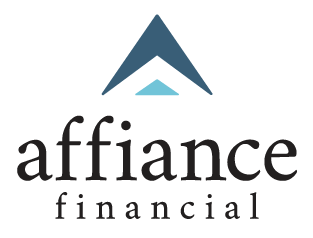
Charitable Giving and Planning for Your Legacy
By Steve Lear, ChFC, CLU, BFA™
My years of experience in the financial service industry have helped me understand the value and impact charitable giving brings to individuals of all economic backgrounds - not only for those receiving gifts, but for those giving gifts as well. Charitable giving allows you to make meaningful contributions to organizations that share your core values. The process is strategic, advantageous, and unique to you. It is an integral part of the legacy you leave behind. Yet for some people, it can be hard to know where to start. It is my belief that this hesitation comes from two challenges: confidence and planning. The great thing is that financial planning can solve both of these challenges!
Challenge #1: Confidence
It is natural to put our wants and needs first. Maslow’s Hierarchy of Needs explains the psychology behind this behavior. We must meet our basic physical and psychological needs before realizing our highest potential (self-actualization.) It is not until we reach this stage that we can shift our focus to helping others.
When we give back by donating our time or money to an organization, we get closer to becoming the best version of ourselves. I have yet to meet someone who doesn’t experience joy and gratitude when supporting a cause that provides a valuable service to society. But we can only embrace self-actualization when we feel secure that our needs are met. That is where financial planning comes in.
Financial planning enables you to increase your giving with confidence by providing the following information:
- A clear understanding of your financial picture. Having a thorough understanding of your personal financial picture is the first step toward confident charitable giving. Gaining sightlines into your assets – including retirement savings, bank account balances, and home value – and your liabilities – including your mortgage, car loan, and other debt – will help you begin to determine if you have excess.
- Confidence in the progress you are making toward your financial goals. Much of the financial planning process is goal-based. Planning for retirement, buying a home, and saving for education are a few examples of financial planning goals. Financial planners help track your progress toward your goals, and can offer assurances (or advice) about the likelihood of success (or failure). When you feel confident that you are on track to meeting all of your financial goals, you are able to start thinking about the financial goals of others.
Challenge #2: Planning
We spend a lot of time planning vacations and special events. We work to ensure special occasions run smoothly and bring us joy and fulfillment. We value the time spent planning, as it creates a sense of security and confidence about what lies ahead. But what if we devoted equal time to planning how to help others?
Financial planners use defined strategies to maximize the impact of a charitable gift for both the recipient and the donor. These strategies include creating:
- A formula to determine your giving budget. Defining a formula for how much of your asset base will be allocated to philanthropy can streamline your philanthropic efforts from year to year. Examples of charitable giving formulas include:
- Establish a percentage of your earned income or a percentage of your asset base – for example, allocating 5% of your earned income or 1% of your asset base – to charitable giving.
- Cap your net worth and give away any assets exceeding that amount.
- Forget the math and go with your instincts. Determine the priority level for charitable giving within your goals and values.
- A tax strategy to maximize your gift. Being planful about your philanthropy could result in significant tax savings. Depending on your situation, your financial planner might recommend bunching several years of contributions into one tax year, opening a Donar Advised Fund (DAF) or making a Qualified Charitable Distribution (QCD) from your Individual Retirement Fund (IRA). Whatever the specific strategy, working with a financial planner can help ensure you make the most of your gift, while minimizing your tax liability.
Leaving a Legacy
A legacy plan is an opportunity to ensure your vision for the future. I encourage you to consider a legacy plan that includes charitable giving in whatever way is most meaningful to you. This allows you to pass more than just financial assets to future generations. Leaving a gift to charity is a way for you to pass on your values.
Financial planning plays an important role in charitable giving because it solves two challenges that hold many would-be philanthropists back: confidence and planning. Financial planning provides people with the confidence that they have enough to meet their current needs and reach their future goals. And financial planning utilizes strategies to help people determine not only how much to give, but how to give in a mutually beneficial, tax-efficient manner. After many years in the financial service industry, I have come to the conclusion that contributing to causes you believe in prioritizes the need to give back and demonstrates generosity's important role in building a thriving society.
What will your legacy be?
If you are ready to start planning your legacy, contact your Affiance Financial advisor today.
The views represented are not meant to be construed as advice. Moreover, no client or prospective client should assume that this content serves as the receipt of, or a substitute for, personalized advice from Affiance Financial, or from any other professional. Affiance Financial is not an attorney and no portion of this content should be interpreted as legal advice.




